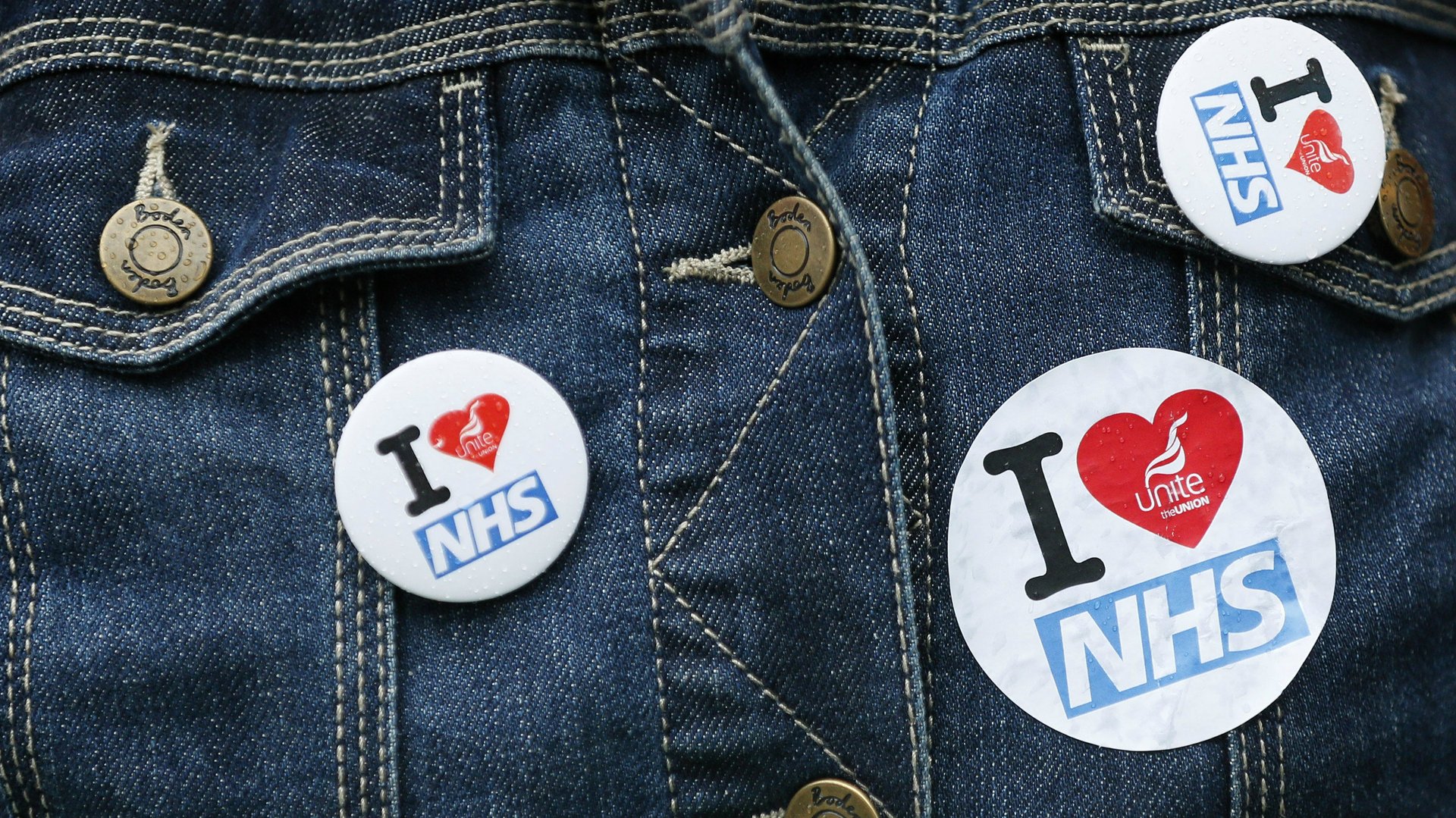How 70 years of the UK’s beloved National Health Service transformed Brits’ lives
Today (July 5), the UK’s beloved National Health Service (NHS) turns 70 years old.


Today (July 5), the UK’s beloved National Health Service (NHS) turns 70 years old.
The free health care system, funded through taxpayer money, is a jewel in Britain’s crown. In fact, it makes British people more proud (pdf) than both the signing of the Magna Carta and the country’s defiance of Adolf Hitler during World War II.
In the time since its founding, Britain has had 15 prime ministers and nearly as many competing visions for how a health care system of its size should work. In 1948, health minister Aneurin Bevan promised that the NHS would be “free at the point of need.” And so, in the seven decades since, the service’s chief contribution to the country’s national psyche has been one of reassurance.
Even then, the NHS has completely revolutionized healthcare in the UK. The life expectancy of a male in England and Wales has jumped from 65.86 to 79.46, while that of a female has jumped from 70.29 to 83.08.
The number of infant deaths in England and Wales has plunged from almost 27,000 a year to just 2,700.
In the meantime, inflation-adjusted spending on health in the UK has increased ten-fold, from £12.7 billion ($16.8 billion) in 1950 to £135.6 billion ($180 billion) in 2015. The proportion of the country’s GDP spent on health has more than doubled.
Though the US-based Commonwealth Fund ranked the British health system as better than 10 other well-off countries in 2017, the health budgets of successive UK governments have faced criticism—particularly in comparison to spending in countries with similarly sized economies, like Germany and France.
That’s part of the reason why prime minister Theresa May last month announced the biggest funding boost to the NHS since 2002, with plans for the service to get an additional £20 billion a year by 2023-24.
However, UK chancellor Philip Hammond has said over the last month that he’s struggling to find where he will get the extra money, other than by taking it from other vital services. He recently said that it’ll likely come from an increase in taxes—an unpopular move to be made by any government.
Even then, the head of Britain’s spending watchdog, Amyas Morse, has already warned that the NHS will need even more cash if it’s to keep up with the country’s growing population.